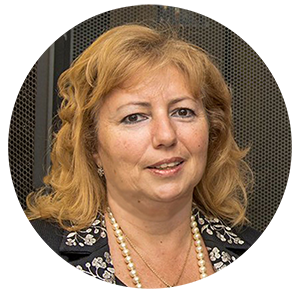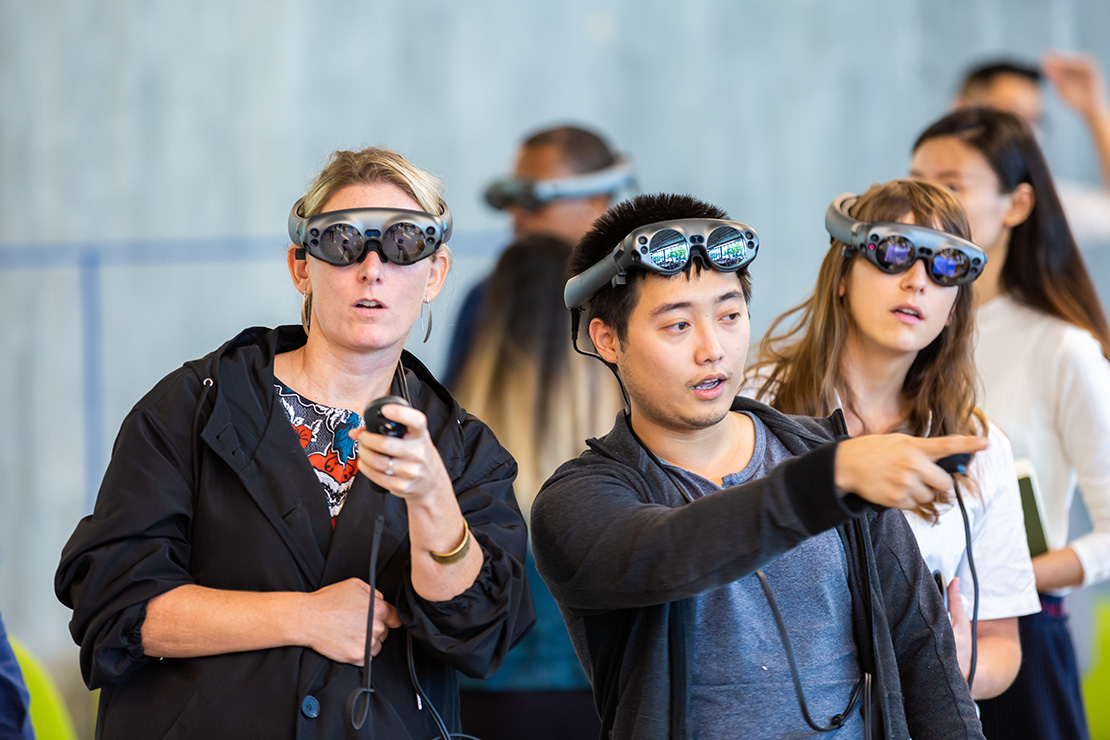 While most people think of blockchain as the “secret sauce” of cryptocurrencies, Yelena Yesha, PhD, believes this powerful computational technology has the potential to transform industries around the world.
While most people think of blockchain as the “secret sauce” of cryptocurrencies, Yelena Yesha, PhD, believes this powerful computational technology has the potential to transform industries around the world.
“We have done a tremendous amount of research on blockchains for securing medical devices, including a novel network system that enables patient consent,” said Dr. Yesha, who is IDSC Innovation Officer and Head of International Relations, program Director of AI and Machine Learning, and a Knight Foundation Chair of Data Science and AI.
 “We are also using blockchain for supply distribution, as well as studying how this technology can be used to curtail fake news,” she added. For instance, the Institute for Speech Freedom, along with the U.S. State Department is reviewing a proposal for using blockchain and AI algorithms to see what kinds of misinformation people in Iran are getting from their government or other sources.
“We are also using blockchain for supply distribution, as well as studying how this technology can be used to curtail fake news,” she added. For instance, the Institute for Speech Freedom, along with the U.S. State Department is reviewing a proposal for using blockchain and AI algorithms to see what kinds of misinformation people in Iran are getting from their government or other sources.
Blockchain is the technology used by developers of cryptocurrencies, like Bitcoin, to enable exchange of financial ‘coins’ between participants in the absence of a trusted third party to insure the transaction, such as is typically done by governments, Dr. Yesha said. It builds a trustworthy decentralized service in an untrustworthy environment.
“We have found find that a certain type of blockchain, permissionless, has not been adopted in governmental settings, and we concluded that permissioned blockchains may best be suited to them due to better scalability, lack of anonymity, and better data integrity guarantees,” she said.
In the past nine months, Dr. Yesha has given a keynote address at the 21st annual International Conference on Digital Government Research, and, both her June presentation on “Using Blockchain to Empower Digital Government,” and another study, “Blockchains for Government: Use Cases and Challenges,” were published by the Association for Computing Machinery (ACM)
In January, she gave two talks to the National Task Force on Blockchain, and on February 1st she spoke on “Blockchain and Artificial Intelligence” at the “MDEpiNet Annual Meeting Virtual Series Final Session CRN COVID-19 Capacity Building.”
“Since 2008, blockchain implementation has exploded, primarily driven by its native ability to support any type of digital transaction,” said Dr. Yesha. “The algorithms that power these distributed transactions have given rise to a new method for securely storing data in a digital world that is oftentimes adversarial. Because blockchain guarantees high service availability as well as data integrity, any industry in which transactions or processes rely on the use of a trusted third party, or where a strong guarantee of security is required, can consider implementing blockchain solutions, as should governments worldwide.”
Tags: Bitcoin, Blockchain, Blockchain and Artificial Intelligence, Blockchains for Government: Use Cases and Challenges, CARTA, cryptocurrencies, Department of Computer Science, International Conference on Digital Government Research, MDEpiNet Annual Meeting Virtual Series Final Session CRN COVID-19 Capacity Building, National Task Force on Blockchain, NSF, Using Blockchain to Empower Digital Government, Yelena Yesha



